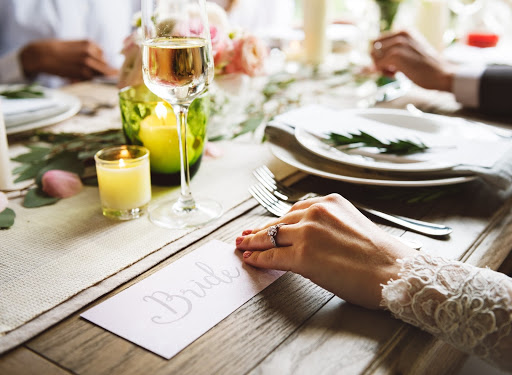
Green weddings are becoming more popular, as the world gains more awareness about how their actions impact the Earth. As the wedding industry can be quite wasteful, many couples are consciously trying to reduce their carbon footprint by having an eco-friendly event.
Catering is one area that can make a huge difference when trying to be eco-friendly. Here are five tips for organizing your wedding day catering to minimize the impact on the environment.
Table of Contents
Talk to Caterer About Practices
There are a lot of things to do when preparing for a wedding: choosing one of the many amazing Azazie wedding dresses, finding a venue and date, and finding a caterer to name a few.
The first step to eco-conscious catering is to choose a caterer whose vision is aligned with your own. During the interview process, there are questions you can ask that will help you determine if being eco-friendly matters to them, including:
-
Do you compost and recycle?
-
Do you buy in bulk?
-
How do you ensure you have the right amount of food?
-
What steps do you take to limit waste?
These are just a few questions that will give you insights into their practices. Feel free to ask any that come to mind.
Seasonal Meals
Another way to limit your carbon footprint when choosing a catering option is to opt for seasonal meals. When you choose seasonal produce, you’re ensuring that the food you serve your guests didn’t have to be shipped in from a faraway location or stored in a specialty warehouse. Furthermore, if food is in season, it’s less likely to have come in contact with harmful chemicals that keep things alive when they shouldn’t be.
For summer weddings, serving strawberry shortcake, salads, and fresh vegetables is a great way to have an eco-friendly menu. In the fall and winter, focusing on warm, harvest-style meals like soups and root vegetables is comforting and green.
Avoid a Buffet
Many couples choose a buffet-style set up because it’s cheaper than serving a seated meal. However, this style of catering service can be the most wasteful. Caterers will often overestimate how much your guests will eat as not to run out. This can result in way too much food being prepared and served.
If a seated meal is outside your budget, look for other alternatives. Cocktails and snack bars are an affordable way to give your guests something to nosh on without worrying about waste.
Local Sourcing
In addition to using seasonal vegetables, sourcing local goods help both the environment and the local economy. You won’t be supporting the shipping of produce across the world when you have options available, cutting down on your carbon footprint. Furthermore, you’ll be supporting local businesses and giving back to the community where the wedding is taking place.
Leftover Donation
Even in the best-laid plans, food waste happens. Rather than having your food waste be scraped into the compost, talk to your caterer about your options. Donating the leftovers to a local homeless shelter is a great way to ensure the food goes to good use.
If there’s no donation center nearby, have your caterers wrap the leftovers into meal portions to take home and freeze or give to guests on their way out the door.
By prioritizing the environment while planning for a wedding, you can limit the negative impact you have on the world around you. With some strategic purchases, you can even have a positive impact. Try to make all aspects of your wedding as eco-friendly as possible.














